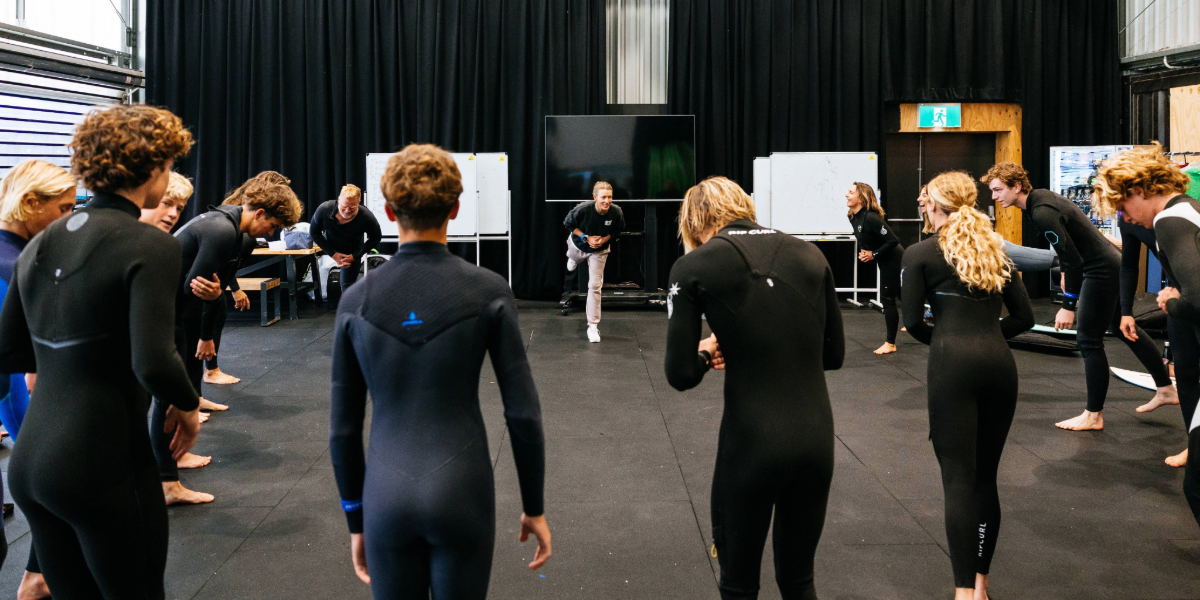All eyes will be on the water in Tahiti this weekend as contestants take to the waves in the new Olympic sport of surfing, but some University of New England (UNE) sport and exercise scientists will be just as interested in what happens on the land before the event.
UNE scientists have been studying and refining the underrated art of the pre-event warmup for nearly two decades. Their findings may assist surfers looking for a competitive edge.
“Surfing is unique in that athletes are in and on the water, often subject to the cold, and it requires power, so building warmth in muscles is an essential first step to performance,” says Professor Christian Cook, a member of UNE’s Human Performance, Physiology and Behaviour group.
“Sometimes there is an assumption that warm-up is simple, but for elite success, where the difference between a personal best and underperforming is small and subtle, this is far from the case.”
Prof. Cook started investigating the links between warmups and performance in skeleton bobsleighing in 2006. He subsequently advised the British bobsleighing team that took gold in the 2010 Olympics.
Since 2015, Prof. Cook has been working with Dr Ben Serpell, also with UNE’s Human Performance, Physiology and Behaviour group, to advance the science of the warmup through other sports.
The researchers have recently been applying warmup science to the performance of surfers. Using a wave pool to control for variables, Prof. Cook and Dr Serpell were able to demonstrate that warm-ups structured in certain ways and combined with passive thermal retaining garments were associated with significantly better on-wave performance.
This can also apply to surfing in very warm temperatures, where traditionally, cooling has been thought desirable. In collaboration with Dr Martyn Beaven of the University of Waikato, Prof. Cook demonstrated that in warm conditions, using performance clothing to maintain leg warmth while cooling the torso could produce performance gains.
Warmups aren’t just for pros, Dr Ben Serpell says. He advises that recreational surfers should also be able to catch more waves, ride them for longer, and extend their manoeuvres “by attending to aspects of the warmup”.
“As the number of free surfers continue to grow, improving warmups will be important to maximising the physical and mental benefits that people who surf seek,” Dr Serpell says.
“A good warmup routine has also long been associated with reductions in injury risk.”
Top image: UNE Research Assistant Lauren Hanna leads a stretching routine with competitive surfers. (Supplied)
Something going on in your part of the New England people should know about? Let us know by emailing newsdesk@netimes.com.au


